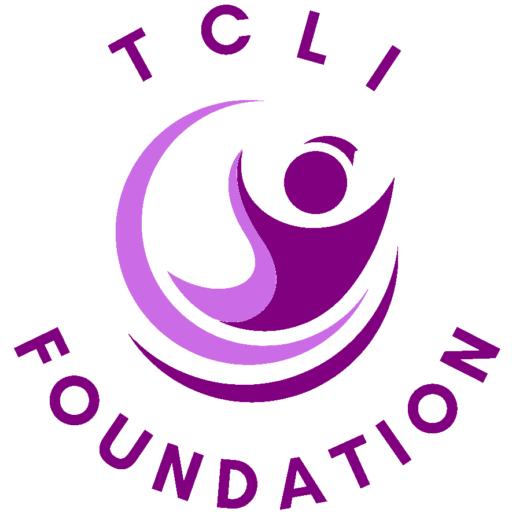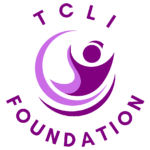Authors: Coker Towunmi Priscilla, Ediale Becky, Oyedeji Olayinka
Introduction
Women are crucial within the family unit for survival due to their resilience, vigour and ingenuity. They also exhibit these virtues through their contributions to the local community and the country’s economy. As a result of the inability of several immigrants to Canada to land their dream jobs even when they are adequately qualified, black women’s resilience makes them take menial jobs (Okeke-Ihejerika et al., 2018). As described in the report by Okeke-Ihejerika et al. (2018), women who do these menial jobs often take up front roles (breadwinners) in their homes and in the community and are thus put under immense pressure to meet family and career expectations coupled with other existing issues they already face. In this report, we describe the multiple barriers black women immigrants face including the limitations they experience in comparison to men of the same race or women from other races, and the response of the Towunmi Coker Literacy Initiative (TCLI) Foundation.
The birth of the ‘Sisterhood’ project
Literature has shown that black women are marginalized by virtue of both their race and gender despite the fact that their socio-economic value is immeasurable (Jagire, 2019). Immigrant women are usually responsible for establishing and maintaining their ethno-cultural values while integrating with the process of migration. Also, studies show that immigrant women usually find menial job opportunities faster than their male counterparts (Okeke-Ihejerika et al., 2018). Hence, they are pivotal to the family’s economic survival. This underscores the need to provide strategies, structures, and paradigms to create enabling environments (opportunities) for black immigrant women to grow and thrive holistically. It is in response to this that the TCLI foundation designed programs mainly to identify barriers and gaps Africa-Canadian women experience and gear these experiences towards socio-economic empowerment.
Towunmi Coker Literary Initiative Foundation (TCLI Foundation) is a Canada-based non-profit organisation that uses social and educational programming tools in three core foundational pillars – quality education, financial literacy and safe health practices to improve quality of life of ‘underserved’ communities. The foundation launched the ‘Sisterhood’ project in July 2020 to provide a safe space for African immigrant women who desire to dream beyond their challenges and make an impact in their society. The project is intended to be a long-term scheme driven platform aimed at empowering black women through dedicated strategies of impact. In order to achieve this, it was imperative to gain an in-depth understanding of problems faced by these women. During an eight-week Saturday interactive approach for thirty three (33) participants which comprised seven virtual meetings and one in-person meeting at Wabamun Lake, we sought to understand what drives these women and what challenges –real and perceived – they faced. Discussions during the virtual meetings revolved around critical topics such as personal branding, mental wellness, life as an immigrant, women economic empowerment, women and mental health, setting up your business, coping mechanisms, building resilience for African women, and financial empowerment.
A common problem statement during the discussions was the fact that these women all faced obstacles getting jobs even when adequately qualified. Some of the most common reasons for not being able to land job roles included being informed that they had no Canadian experience and even sometimes being overqualified for certain roles; one participant said, “Even when I did everything right and got to the last stage of the interview, I still did not get the job. Maybe I am missing something.” This situation is not uncommon as similar stories were echoed from participant to participant. The need to become certified in almost every profession in Canada was a point that was constantly put forward in these conversations. While one cannot undermine the importance of practicing licenses, navigating alternative careers while working towards their main professions was a feat that often seemed insurmountable, mentally draining for most immigrants, as well as having a significant negative impact on their self-worth. Other issues cited included lack of access to community resources, inadequate support groups, financial and economic stress, coupled with the pressure of caring for the family. Even though most participants migrated to Canada within the last 2 to 5 years, the issues were overwhelmingly similar. The questions remained: Are there no changes in the system over the last 5 years? How do immigrant women function at maximum capacity while adapting to new cultures, cuisine, language, weather, e.t.c, while being a visible racialized minority? What systems and structures can be put in place to properly address these issues?
The TCLI Foundation, through these conversations, sought to gain insights into these barriers migrant women face and the impact on their mental health. The foundation realized that if African immigrant women are empowered through education and access to mental wellness programs and activities, a solid foundation is established on which they can build lasting relationships, access valuable community resources, seek mental health support, as well as leverage on relevant networks to achieve their short term goals. Consequently, these women will become self-confident, self-aware, and better able to cope with the challenges of navigating a new territory. All these set the tone for a balanced society in the long term. The in-person meeting was an avenue for physical/social outdoor recreational and wellness activities.
At the end of the 8-week program, concern for their mental health was top on the list of issues that were most important to these women. This seemed a bit surprising since the foundation hypothesized in the beginning that securing a job (which came second) will top the list, caring for the home and concern for their family were surprisingly placed at the bottom of the list. It thus stands to reason that issues of finance, jobs, caring for family and economic security have a direct impact on the mental health and wellness of these migrant women. African women immigrants regardless of where they are born, share similar stories of lack of access to opportunities and numerous barriers upon landing in Canada, which places severe mental stress on them and inadvertently, on their families. One must note that mental health issues in African countries where these women come from are still not largely recognized, or if recognized, not properly addressed. Consequently, there is the risk of overlooking mental health instability in this group, which can either be under- or not reported. This was acknowledged in a study by Januwalla et al. (2018), which pointed to a need for transformation in drafting and implementing gender-specific health programs. The TCLI Foundation, via this report, stresses the need to identify indicators that highlight the need for mental health intervention in women of African origin in Canada, and direct targeted policies and programs to better integrate them into the society.
Perceived Impact of the Project
Participants shared personal experiences and provided useful insights on the subject matter. As the issues began to unfold, it was astounding to hear the stories and see firsthand the famed resilience of the African woman on display. These women collectively agreed that the foundation’s event provided a safe space where they could speak freely about these issues, network with other women, and had access to critical resources.
Black women indeed deserve more support in the form of funding for local business, start-ups and non-profit organisations, a community of support, social wellness and mental health programs. A study by Gagnon et al. (2013) stated that migrant women accounted for a larger proportion of increasing births in their destination countries, thus, it is also absolutely necessary for migrant-focused policies and interventions to address health issues among these women.
A follow up of the attendees revealed a hopeful attitude, with the majority affirming better mental health after taking advantage of the various resources provided by the foundation. A participant was quoted as saying “Coming to Canada can be very daunting because you leave where you are established to a new territory, but I have been inspired by other women who came before me and were able to achieve great feats“.
Recommendations
Engaging African migrant women in conversations that target the issues directly affecting them will place them in better positions to take care of themselves, their families, which in turn will have a positive effect on the society. There is need to create more conversations around the identified issues with specific focus on mental health awareness for this group. There is also a great need for additional studies on the focus group to assess the effect of various existing intervention programs by the government and immigration agencies, with appropriate representation of these migrant women. Furthermore, it is also essential to create targeted intervention programs with active participation of this group in the design and implementation.
References
Gagnon, A.J et al. 2013. Developing population interventions with migrant women for maternal-child health: a focused ethnography. BMC Public Health, 13:471, https://doi.org/10.1186/1471-2458-13-471.
Jagire, J. 2019. Immigrant Women and Workplace in Canada: Organizing Agents for Social Change. SAGE Open: 1-8, https://doi.org/10.1177/2158244019853909
Januwalla, A. et al. 2018. Interventions to reduce adverse health outcomes resulting from manifestations of gender bias amongst immigrant populations: a scoping review. BMC Women’s Health,18:104, https://doi.org/10.1186/s12905-018-0604-2.
Okeke-Ihejerika, P. et al. 2018. African Immigrant Women’s Experience in Western Host Societies: A Scoping Review. Journal of Gender Studies 27 (4): 428-444.

